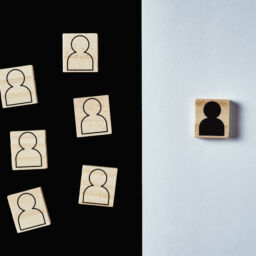
Abuse In Pregnancy: Acknowledging An Undeniable Truth
by- Amanda Hildreth
Domestic Abuse can happen to anyone, regardless of their background, gender, age, ethnicity, religion, or sexuality. Around one in five women experience Domestic Abuse in their lifetime from a partner or ex-partner (NHS Inform, 2023). One in three women are affected by Domestic Abuse when pregnant (Tommy’s Pregnancy Hub, 2023).
Domestic Abuse may be triggered by pregnancy, or existing abuse may get worse during pregnancy or after birth (NHS, 2021).
What Can Trigger Abuse In Pregnancy?
For many, pregnancy can cause stress. However, it isn’t normal for your partner to react violently to stress.
Some partners may become abusive during pregnancy because they feel (March of Dimes, 2023):
- Upset by an unplanned pregnancy
- Stressed at the thought of financially supporting a child
- Jealous that the attention may shift from them to the new baby
What Behaviors May An Abuser Exhibit During And After Pregnancy?
There are a variety of ways in which an abuser may act during or after pregnancy to have power and control over their partner.
During pregnancy, an abuser may (Envision Counseling and Support Centre, 2023):
- Start, continue, or change the patterns of abuse
- Control, limit, or deny access to prenatal care
- Use the pregnancy as an excuse for Emotional Abuse
- Deny that the child is theirs
- Provide no emotional support during pregnancy
- Refuse their partner access to money for food or access to food
- Threaten to leave and report the partner as an unfit parent
- Force their partner to have an abortion
- Injure their partner to cause them to lose the baby
- Force their partner to continue with an unwanted pregnancy
After the baby is born, the cycle of abuse and control doesn’t stop. After the baby is born, an abuser may (Envision Counseling and Support Centre, 2023):
- Increase the amount of abuse
- Deny the partner access to the newborn child
- Not support the partner or help them when they come home with the baby
- Blame the partner because the infant is the wrong gender
- Try to make the partner feel bad for time spent with the baby
- Criticize the partner’s parenting abilities
- Threaten to kidnap the baby
- Make child custody threats
- Make the partner stay at home with the baby
- Prevent the partner from getting a job
- Making or threatening to make false child abuse allegations to Social Services against the partner
- Withhold money or supplies for the baby, such as diapers or formula
- Blame the partner for the baby’s crying
- Not allowing the partner to perform personal hygiene tasks such as bathing
- Threaten to take the baby or other children and leave
Who Is At Risk For Abuse During Pregnancy?
Anyone can experience abuse during pregnancy. However, there are a variety of risk factors that put you at a higher risk for experiencing Domestic Abuse during pregnancy.
A history of Domestic Violence, a lack of social support, a lower education level, and unplanned pregnancy are considered to be significant risk factors for Domestic Violence during pregnancy (Shidhani, Kendi & Kiyumi, 2020).
Alcohol consumption by the abusive partner was also a significant risk factor for all women regardless of pregnancy status (Shidhani, Kendi & Kiyumi, 2020).
Effects Of Abuse On Maternal And Neonatal Outcomes
The effects of Domestic Violence on maternal and neonatal outcomes are multifaceted and preventable.
Experiencing Domestic Violence during pregnancy is associated with a variety of pregnancy-related behaviors. Research shows that women abused during pregnancy are twice as likely to miss appointments for prenatal care or seek care later than is recommended. Poor nutrition and less than adequate weight gain, as well as higher rates of smoking, alcohol use, and substance use, also occur in women experiencing pregnancy abuse (Alhusen, Ray, Sharps & Bullock, 2015).
Negative mental health effects such as depression can occur during pregnancy. Women who experience abuse are 2.5 times more likely to have depression than those not abused while pregnant. Post-Traumatic Stress Disorder is also a common side effect of Domestic Abuse in 19 to 84% of women (Alhusen, Ray, Sharps & Bullock, 2015).
Research supports a link between insufficient prenatal care and negative birth outcomes such as low birth weight or preterm delivery. Women who experienced physical assault during pregnancy also had an increased risk of abruption or hemorrhage during labor (Alhusen, Ray, Sharps & Bullock, 2015).
For women experiencing physical violence, episodes of assault contributed to an 8-fold increase in the risk of fetal death and a 6-fold increase in the risk of neonatal death (Alhusen, Ray, Sharps & Bullock, 2015).
Domestic Violence also has a fourfold increased risk of having a smaller gestational-age infant. These infants are smaller than normal for their gestational age and are at an increased risk of early childhood developmental and behavioral problems, as well as coronary heart disease, stroke, diabetes, and other adverse health effects that can last into adulthood (Alhusen, Ray, Sharps & Bullock, 2015).
What To Do If You Are Experiencing Domestic Violence
Though it may be challenging, getting help if you are experiencing Domestic Violence is crucial. It is not your fault, and you can make a new life for yourself and your baby.
You may feel that if you stay, you may be hurt again, but if you leave, your partner may pursue you.
Here are some steps you can take to get help (Frost, 2021):
- Call 911 if you believe your partner is going to hurt you.
- Call the National Domestic Violence Hotline at 800-799-7233. They can provide confidential crisis intervention and referrals to local resources as well as emergency strategies.
- Consult with your healthcare provider or Norm Therapist®.
- Visit the National Domestic Violence Hotline for important safety planning tips and numbers to call in each state for services.
- Prepare a getaway bag with emergency resources, including clothes, money, ID, food, and water.
We at ARO are here to support you in your personal healing journey to complete well-being. You can schedule Norm Therapy® sessions today by going to our website at GoARO.org to get the help and care you need. We bring awareness and education to 21 different types of abuse, including Sexual Abuse, Spousal Abuse, Physical Abuse, Psychological Abuse, Narcissistic Abuse, Financial Abuse, Self Abuse, Elderly Abuse, Isolation Abuse, Child Abuse, Bullying, Cyberbullying, Workplace Abuse, Religious Abuse, Medical Abuse, Food Abuse, Authority Abuse, Educational Abuse, Child Sexual Exploitation, Sex Trafficking, and Political Abuse and help others heal and find peace. Please support our efforts by going to GoARO.org to learn how you can make an impact on the Abuse Care Community and provide life-saving financial assistance with a donation.
Sources:
NHS Inform. (2023). Violence and abuse in pregnancy | ready steady baby! – NHS inform. ;
Tommy’s Pregnancy Hub. (2023). Domestic abuse during and after pregnancy. Tommy’s. Together, for every baby. ;
NHS. (2023). Domestic abuse in pregnancy. NHS choices. ;
March of Dimes. (2023). Abuse during pregnancy. March of Dimes. ;
Abuse during pregnancy.
Envision Counseling and Support Centre. (2023, March 15). ;
Shidhani, N. A. A., Kendi, A. A. A., & Kiyumi, M. H. A. (2020, October 28). Prevalence, risk factors and effects of domestic violence before and d: IJWH. International Journal of Women’s Health. https://www.dovepress.com/prevalence-risk-factors-and-effects-of-domestic-violence-before-and-du-peer-reviewed-fulltext-article-IJWH
Alhusen, J. L., Ray, E., Sharps, P., & Bullock, L. (2015, January). Intimate partner violence during pregnancy: Maternal and neonatal outcomes. Journal of women’s health (2002). ;
Frost, A. (2021, November). Domestic violence in pregnancy. BabyCenter. ;
















